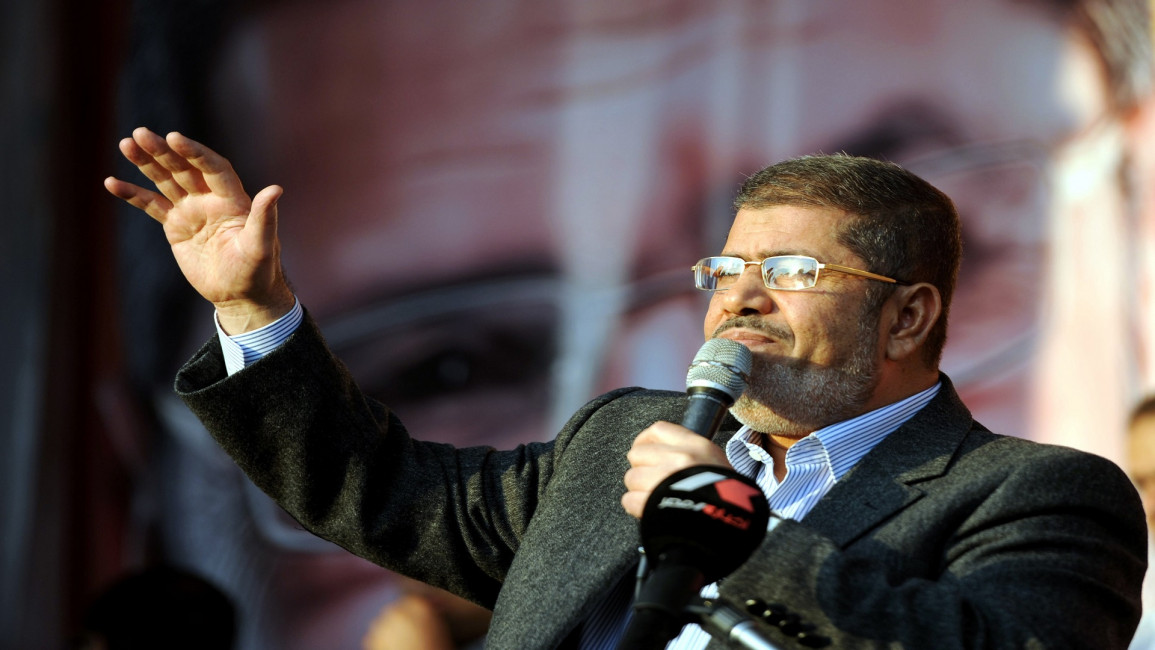'Full alert': Egypt deploys troops following death of Egypt's first democratically-elected president
In a statement, the ministry said that it had "carried out a full review of its plans, and deployed thousands of patrols and checkpoints across the country, and announced a full alert in all security directorates and sectors".
The statement said that all leave for members of the security officers had been cancelled and that security had been stepped up at hotels and public facilities.
Protests are likely to take place in Egypt following the death of Morsi, who came to power following the country's first ever democratic presidential election in 2012 but was deposed in a military coup the following year.
The coup paved the way for current Egyptian President Abdel Fattah al-Sisi to take power.
The interior ministry also said it was ready to carry out "pre-emptive strikes against terrorist elements", in what appeared to be a reference to the Muslim Brotherhood organisation, which Morsi was a member of.
The Muslim Brotherhood was outlawed and declared a terrorist organisation in December 2013 by the post-coup Egyptian government, six months after Morsi was deposed.
Morsi, who was 67 years old, died on Monday while making a speech in court, Egyptian state television reported.
"He was speaking before the judge for 20 minutes then became very animated and fainted. He was quickly rushed to the hospital where he later died," a judicial source told AFP.
Morsi had been suffering from a number of health problems before his death, including diabetes and kidney disease.
In March this year, an independent panel of British MPs reported that Morsi was being kept in solitary confinement for 23 hours a day and was being denied basic medical treatment, which "could lead to his premature death".
In a previous court appearance Morsi also said that he was deliberately being left to die and had lost consciousness several times in one week.
Morsi was being tried on a number of charges, including collaboration with the Palestinian group Hamas and the Lebanese group Hizballah.
The charges were widely seen as trumped-up and politicised. Egypt's current government has contacts with Hamas and mediate between them and Israel.
Egypt's Nile News TV said that Morsi’s "body has been transferred to a hospital and necessary procedures are under way".
Since Sisi took control after ousting Morsi, Egyptian authorities have carried out a far-reaching crackdown on dissidents and Muslim Brotherhood members.
Egypt's courts have sentenced to death or lengthy jail terms hundreds of people after speedy mass trials, including Morsi and several leaders of his Brotherhood movement.
Many have appealed and won retrials but 26 executions have been carried out.



